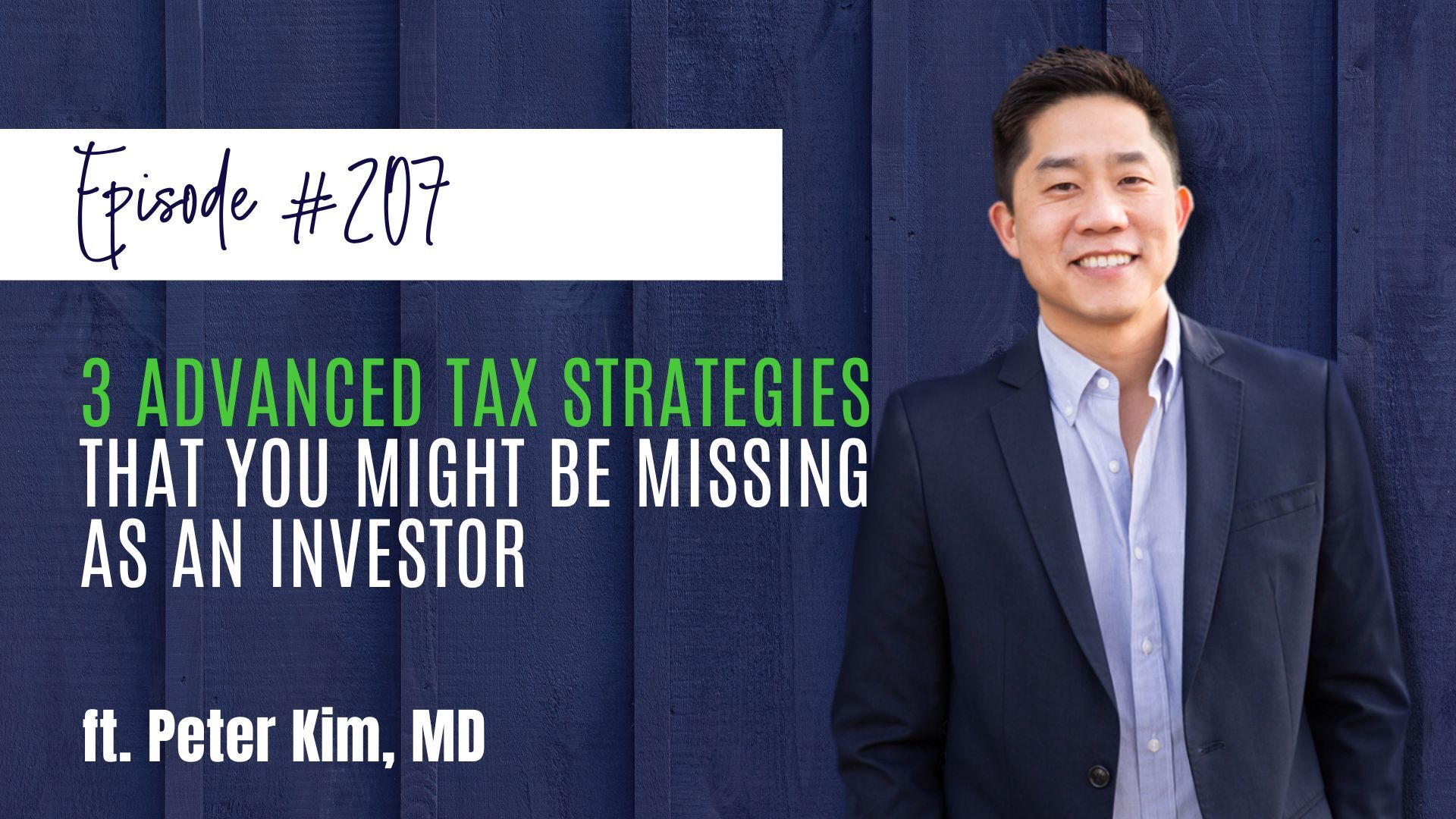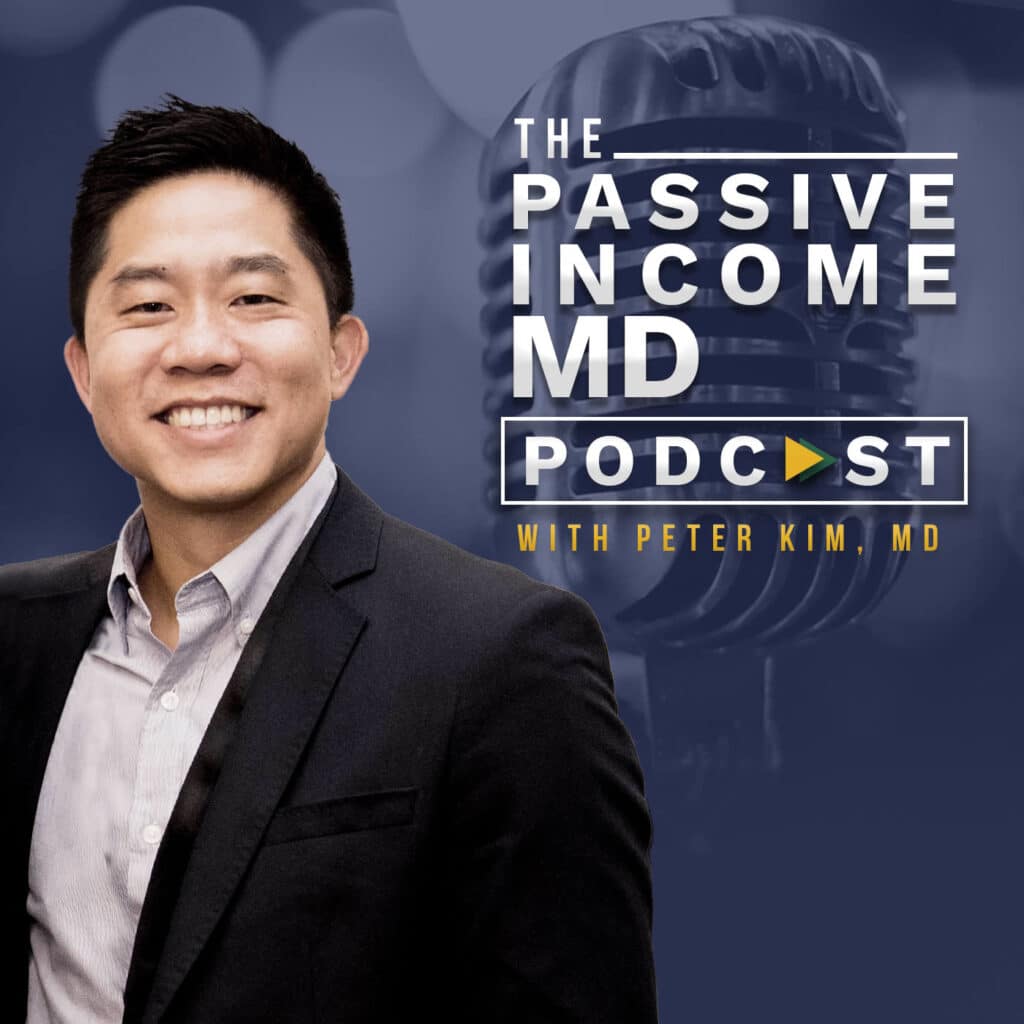
#207 3 Advanced Tax Strategies That You Might Be Missing as an Investor ft. Dr. Peter Kim
In this episode, Dr. Peter Kim explores three advanced tax strategies that you might be missing as an investor. Join us as we delve into innovative ways to optimize tax efficiency and maximize wealth through strategies like tax loss harvesting, charitable giving with a donor-advised fund, and qualified opportunity zones.
Are you looking for a community to encourage you as you begin, or want to accelerate your business to the next level? Then join thousands of physicians who share the same journey of creating their ideal lives through multiple streams of income by joining us in our Facebook communities such as Passive Income Docs and Passive Income MD.
Like what you heard? Subscribe and Rate Us!
Episode Highlights
Now, let’s look at what we discussed in this episode:
- Maximizing Tax Strategies
- Tax Loss Harvesting
- Charitable Giving With a Donor-advised Fund
- Qualified Opportunity Zones
Here’s a breakdown of how this episode unfolds.
Episode Breakdown
Maximizing Tax Strategies
Peter starts by discussing the importance of understanding and utilizing tax strategies to maximize earnings and keep more money in your pocket.
He talks about the need to be informed about tax benefits available to investors and entrepreneurs to minimize the stress of tax season. He advises to always consult your CPA and highlights the importance of being proactive in managing investments and tax-related decisions.
With this in mind, he shares three advanced tax strategies to help everyone save more money efficiently.
“You can make a ton of money. But if you can’t keep a lot of it, then what’s the point.” — Dr. Peter Kim
Tax Loss Harvesting
For his first tax strategy, he talks about tax loss harvesting.
He mentions that it is a strategy used by investors to reduce taxable income by selling underperforming investments that have experienced losses. By realizing these losses through strategic selling, investors can offset capital gains and minimize their tax liabilities.
Dr. Kim shares that timing and market conditions play a crucial role in implementing this strategy, and considerations such as the wash sale rule and transaction costs need to be taken into account.
Peter advises to consult our CPA to ensure the strategy aligns with long-term investment goals and overall financial planning.
“You have to be your own best advocate when it comes to taxes.” — Dr. Peter Kim
Charitable Giving With a Donor-advised Fund
Onward to his second advance tax strategy, Peter shares that charitable giving through a donor-advised fund allows individuals to contribute funds or assets to a specialized charitable account managed by organizations like Vanguard or Fidelity.
By donating appreciated assets, such as stocks, individuals can receive an immediate tax deduction for the full market value of the donation, avoiding capital gains taxes.
He mentions that this strategy is beneficial for those in high-income tax brackets looking to increase deductions and lower taxable income. Donors can decide how and when to distribute the funds from the donor-advised fund, offering flexibility in charitable contributions and tax planning.
Again, he strongly advises to consult with your CPA to optimize the use of donor-advised funds for tax efficiency and philanthropic goals.
“Giving back and doing charitable giving is important to us. And so people want to figure out the best way to do that in a way that’s tax efficient and makes sense for you.” — Dr. Peter Kim
Qualified Opportunity Zones
Last but not least, Peter talks about Qualified Opportunity Zones.
He shares that it is a strategy that provides a way to defer capital gains taxes by investing in certain real estate projects. By holding the investment for at least 10 years, investors can benefit from favorable tax treatment. Investing in these zones can help revitalize distressed areas, create jobs, and align with social impact goals.
Before he closes, Peter reminds everyone that it’s crucial to conduct due diligence and ensure investments are sound before considering tax implications. Discussing strategies with a tax professional can help optimize investments for tax efficiency and long-term wealth transfer.
“Because at the end of the day, it’s about what you keep, not what you make.” — Dr. Peter Kim




